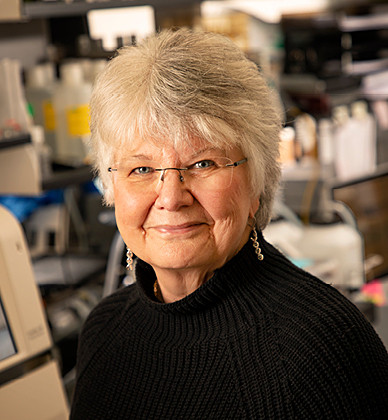Julia Hilliard, Ph.D.
Molecular biology
Georgia State University
Recruited: 1997
By unraveling herpes B virus, a strain commonly carried by macaque monkeys, Julia Hilliard not only saves the lives of biomedical researchers, but also protects primate-based research that may someday lead to a cure or vaccine for HIV/AIDS.
B virus is generally harmless in the monkey population. But when contracted by a human host, it attacks the central nervous system, causing paralysis and death within weeks.
Hilliard’s research focuses on understanding why the effects of the virus are so disparate in different hosts. Her aim is to develop vaccines or therapies for B virus, as well as for other zoonotic diseases that may cross over into the human population.
Hilliard’s Georgia State lab also serves as an invaluable global resource: It tests more than 20,000 samples from around the world each year for potential B virus infection. The lab must work quickly, since early detection and antiviral treatment significantly reduce the threat of death after exposure. Such losses of life, tragic on their own, could also have a broader impact by leading the government to shut down primate labs, thereby impeding crucial biomedical research.
Research
- Antiviral drug development
- B virus infections among different cell lines
- Sequencing the B virus genome
- Robotics Project
- ELISA method improvement
- Locating the B Virus receptor
- B virus glycoprotein expression in bacterial systems
Choosing Georgia
In the late 1990s, Hilliard was initially skeptical that Georgia could provide the highly secure (BSL3 and BSL4) labs needed for her research and clinical studies. GRA took a team of architects to meet with her to show their blueprints for her labs and ensure they had everything needed to meet her requirements. GRA also invested in the construction of the facilities.

